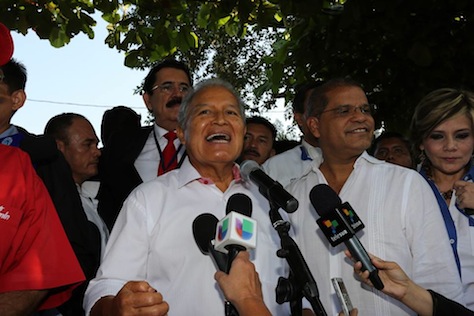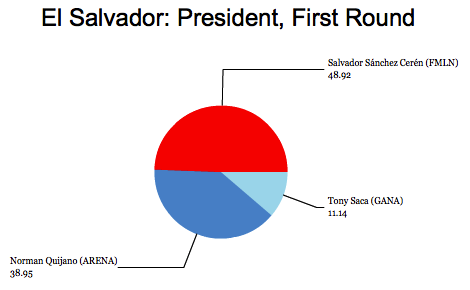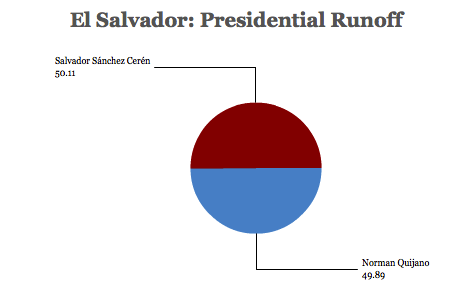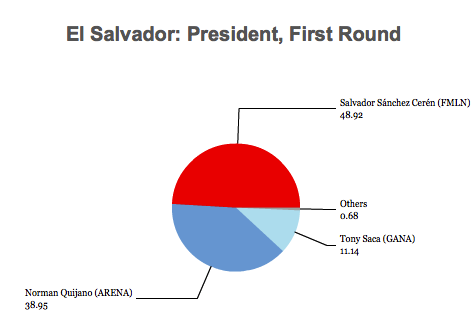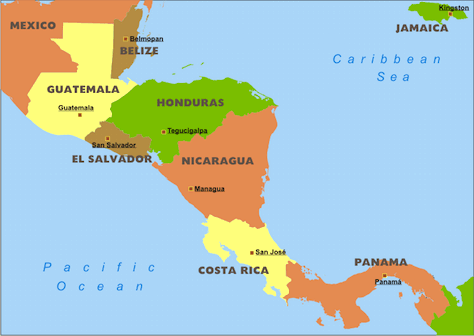Though El Salvador’s vice president, Salvador Sánchez Cerén, was expected to win the March 9 presidential runoff, the result was so tight that no winner has yet been formally declared, pending a recount of the too-close-to-call election.![]()
Sánchez Cerén (pictured above, left, with running mate Óscar Ortiz, right) almost won the presidency outright in the first round on February 2, taking 48.92% of the vote, a nearly double-digit lead over his challenger, San Salvador mayor Norman Quijano, who won just 38.95%:
Sánchez Cerén hopes to extend the rule of the Frente Farabundo Martí para la Liberación Nacional (FMLN, Farabundo Martí National Liberation Front), the one-time guerrilla group that is today El Salvador’s major leftist political party. In 2009, Mauricio Funes, a former journalist, led the FMLN to its first-ever electoral victory, ending nearly two decades of post-civil war rule by the center-right Alianza Republicana Nacionalista (ARENA, Nationalist Republican Alliance).
On Sunday, however, provisional results show that Sánchez Cerén won just 50.11% of the vote, narrowly leading Quijano, who had 49.89% of the vote:
How did this happen?
It wasn’t too difficult to realize, even before February 2, that the runoff vote would tighten. That’s because in the first round, Sánchez Cerén easily consolidated the FMLN vote, while Quijano had to compete against Elías Antonio ‘Tony’ Saca, a conservative who served as president from 2004 to 2009. Saca, following his presidency, was kicked out of ARENA, largely over allegations of corruption stemming from his presidential administration and his future presidential ambitions. Accordingly, Saca led a third-party coalition against both Quijano and Sánchez Cerén in 2014.
Though Saca won a relatively disappointing 11.44% in the first round, it seemed clear that Quijano would win the majority of Saca supporters in the second round. Taken together, the combined Quijano-Saca support totaled 50.39%, proving in the first round that there’s a basis for a center-right, conservative electoral coalition. If Quijano were able to win almost all of the former Saca voters and/or win over a few first-round FMLN voters, he could leapfrog Sánchez Cerén and into the presidency. Sunday’s provisional result seems to indicate that, though Quijano consolidated much of the conservative vote, it still wasn’t quite enough (though let’s wait for the full recount). Continue reading Sánchez Cerén narrowly leads Salvadoran presidential vote
